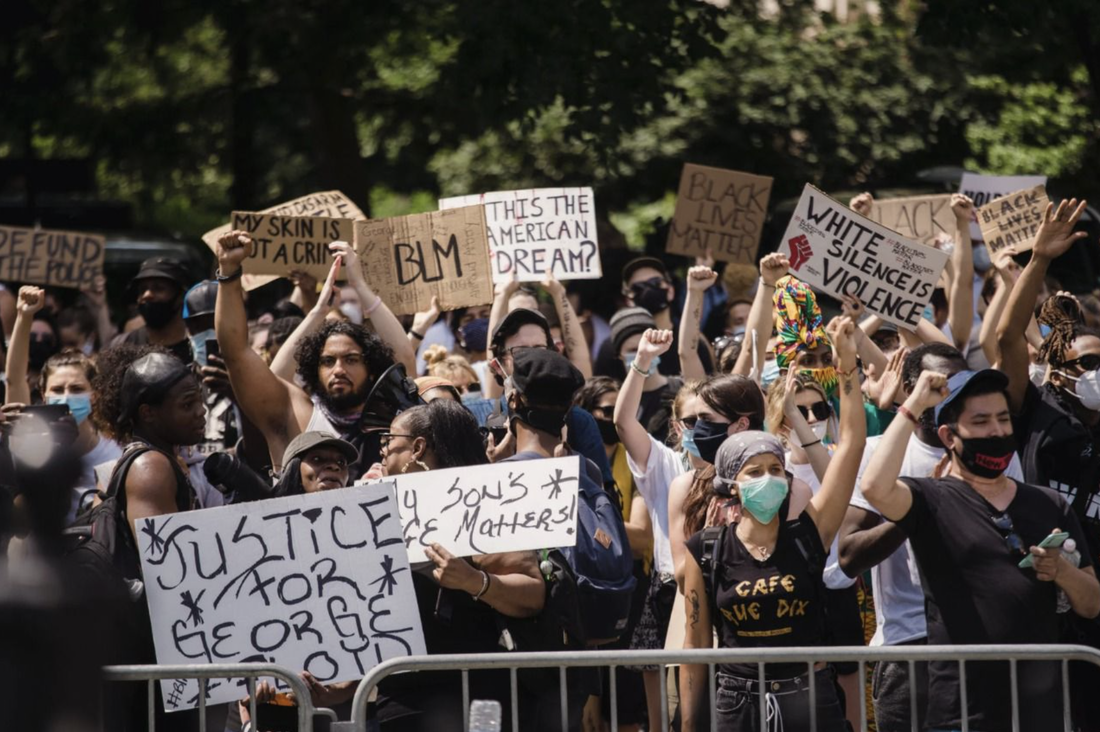|
By: B. Lucio Throughout history, humanity has been exposed to the fact that "quiet does not always mean peace." Take the lives of African American people, such as Amanda Gorman herself. Amanda Gorman, a “skinny Black girl,” as she describes herself, lists a few of the struggles of being African American in her poem “The Hill we Climb”, which was presented during the inauguration ceremony.
Before the civil rights movement during the 1950s, the lives of African Americans were harsh, but there was little awareness about the situation. Therefore, even though things were quiet, it did not mean that the African American community made peace with the discrimination circumstances in society. Let’s take the lives of African Americans in the United States as an example. Discrimination and segregation originated mostly due to slavery, and when the slaves were freed, life was still a life of deprivation. In the southern states, life was even more difficult due to the Jim Crow Laws which enforced racial segregation, and of course, there was always a way to protest the situation, but it never really made a change to the structure of this racist society. As Amanda Gorman states in her poem: “the norms and notions of what just is isn't always justice." The people of America had to do something “efficient” to finally change the laws of injustice that shaped this racist society. It was only around the time televisions reached most of the American homes, during the 1950s, that the protests and atrocities were televised, and the world was exposed to the horrors that the African American community faced every day. Here is a quick timeline to understand when things began to change: 1954: Brown v. Board of Education. Legally ending racial segregation in public schools, although many remained segregated. 1955: Emmett Till, a 14-year-old boy from Chicago, is murdered by white teens in Mississippi. He was accused of flirting with a white lady. It came to public attention when Emmett’s beaten body inside an open casket was televised. During the same year, Rosa Parks does not give up her seat in a bus for a white man in Montgomery, Alabama. This event leads to the start of the Montgomery Bus Boycott, which lasted a year until the Supreme Court ruled the end of racial segregation in buses. 1957: “Little Rock Nine”, the name referring to nine black students who were blocked from entering Little Rock Central High School in Arkansas. The federal government commanded troops to escort the students. The students were still harassed, but the event was brought to public attention. A few days after, President Eisenhower signs the Civil Rights Act of 1957, which helps to protect voter rights. The objective of this act is to allow federal prosecution of people who suppress another’s right to vote. 1961: The Freedom Rides, composed of black and white activists protested segregation in Southern states. International attention was drawn to the cause being protested. 1963: 250,000 people participate in the March on Washington for Jobs and Freedom, where Martin Luther King Jr addresses his “I Have a Dream” speech. 1964: President Lyndon B. Johnson signs the Civil Rights Act of 1964, to avoid not only discrimination due to race and colour but also sex and religion. 1965: Malcolm X, a significant figure of the civil rights movement, is murdered. 1968: Martin Luther King Jr is assassinated. In the same year, President Johnson signs the Civil Rights Act of 1968, known as the Fair Housing Act, which aimed to provide equal housing regardless of background and race. The people were never at peace with the situation, they just were just not heard. More recently, the world has experienced attacks Russia launched in Ukraine. Although the tension between these countries has only come to the world’s attention in late February, Russia has been gradually approaching Ukraine since 2014, as part of a plan. Therefore, quiet does not always mean peace.
0 Comments
Leave a Reply. |
Categories
All
Archives
June 2024
|

